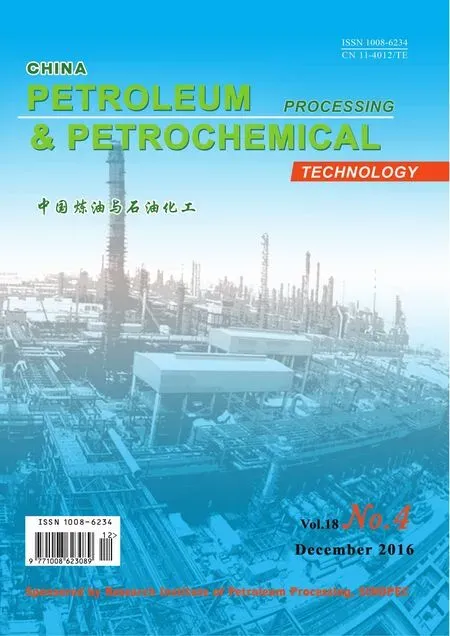RIPP Works on Crude Formulation Technique to Grapple with Refiners’ Tough Problems
RIPP Works on Crude Formulation Technique to Grapple with Refiners’ Tough Problems
Currently “The Crude Formulation Technique” developed by the SINOPEC Research Institute of Petroleum Processing (RIPP) has passed the technical review sponsored by the Sinopec Corp. This technique by means of adopting the advanced algorithm on the basis of the crude assay data bank and the large crude spectroscopic database can intelligently blend together different kinds of crude oils to obtain multiple crude formulations, the quality of which is quite close to the target crude in a bid to provide technical support to the refining enterprises in the area of crude procurement and sustained property stabilization of crude oils processed thereby.
More than 80% of crude oils processed at SINOPEC’s refneries are imported and the crude diet covers over 100 varieties. Some large refning enterprises have to process 20-30 kinds of crude oils in a year, and frequent switch to various crude oils would affect the product quality and decrease the economic benefts of the refnery. Furthermore, the undue dependence of the refinery on specific crude would lead to insufficient supply of such crude along with abrupt increase of crude price, which would boost the production cost of the refnery.
The crude formulation technique developed by RIPP with independent intellectual property rights adopts the advanced Cuckoo Search algorithm, which based on the crude assay data bank and the ample crude spectroscopic database can intelligently blend together different kinds and amount of crude oils to obtain “the analogical crude formulation”, the property of which is quite similar to that of the optimized crude. The formulated crude apart from making its macroscopic physical property comply with the refiner’s optimized crude property should also be suitable for processing at the refinery to avoid frequent crude switch-over in order to ensure long-cycle and stable operation and reduce economic loss caused by crude switch-over. This crude formulation technique has provided the refiners with reliable data basis in the field of crude procurement, oil blending and transportation, oil processing at refineries, crude resource optimization and other business policy decisions, which can build up a solid foundation for integration, unified management, development of refining processes and catalysts and precaution against safety hazards at the refining enterprises.
The experts attending the review meeting, besides unanimously recognizing the ingenuity and good application prospects of this technique, have also made suggestions to develop and perfect the crude software platform which should be suited to the multi-lateral and multi-purpose refining demand in order to speed up its commercial application tests.
- 中國(guó)煉油與石油化工的其它文章
- Methodology for Design of Reactive Distillation Column and Kinetics for Isoamylene Etheri fi cation Catalysed by Amberlyst 35
- Optimization and Control of Extractive Distillation with Heat Integration for Separating Benzene/Cyclohexane Mixtures
- Molecular Simulation of Adsorption of Quinoline Homologues on FAU Zeolite
- Study on the Effect of Surface Modi fi cation on the Properties of Bentonite Greases
- Improvement of Magnetic Field on Tribological Properties of Lubricating Oils with Zinc Butyloctyldithiophosphate
- Study on Tribology Performance of Different Lubricant Additives under Atmospheric Pressure and High Vacuum Conditions

